About Montana VA Health Care System Billings CBOC
The Montana VA Health Care System Billings CBOC offers a comprehensive range of services to help those struggling with addiction and mental health issues. From detox and inpatient treatment to outpatient care and aftercare support, they provide the latest evidence-based therapies and treatments to help people on the road to recovery. Whether you are struggling with addiction, mental health issues, or both, the Montana VA Health Care System Billings CBOC can help you get your life back on track.
Addiction Treatment Programs
Alcohol Rehab
An alcohol rehab in Montana helps people gain the skills they need to overcome addiction and maintain long-term sobriety. The rehab program may use multiple approaches, including nutrition, psychology, holistic methods, and support groups. These tools help you build a substance-free lifestyle and move into long-term recovery.
Dual Diagnosis
A dual diagnosis is when you have a mental health diagnosis along with a substance use disorder. Getting integrated rehab in Montana is essential to long-term recovery. In addition to typical detox, inpatient treatment, and outpatient care, a dual diagnosis program may include medication management, additional counseling, and classes on healthy coping and other important life skills.
Opioid Addiction
If you choose rehab in Montana, you’ll receive professional treatment that will help you break free of opioid addiction. Opioid treatment programs address the mental, emotional, and relational issues that may contribute to addiction. You’ll learn to build a new support network that supports your long-term sobriety.
Adult Program
Adulting can be hard. When you choose an adult program in Montana, you get the support you need to overcome addiction and build a successful life. In addition to typical detox, inpatient treatment, and outpatient care, an adult program may also teach clients about building a career, saving for retirement, parenting, and more.
Senior Rehab
Older clients may find it more comfortable to choose a senior rehab in Montana. A specialized rehab for seniors can provide help for the specific challenges of aging. This may include counseling, help with pain management, skills for overcoming loneliness, and more.
LGBTQ Friendly Rehab
Members of the LGBTQ+ community may find it more comfortable to choose an LGBTQ+ friendly rehab in Montana. Whether you need detox, inpatient treatment, or outpatient care, an LGBTQ+ friendly program will offer specific support for your emotional, mental, and social needs.
Military Rehab
If you’re looking for an understanding environment to work on your recovery as a military member or veteran, consider finding a military rehab in Montana. In addition to typical detox, inpatient treatment, and outpatient care, a military program may also provide classes about managing PTSD, overcoming trauma, adjusting to civilian life, and more.
Men's Rehab
Men need unique support, and a men’s rehab in Montana can help them manage gender-specific concerns while overcoming addiction. In addition to typical detox, inpatient treatment, and outpatient care, a men’s program may also teach clients about having healthy relationships, fatherhood, building a career, and more.
Women's Rehab
When people join a women’s rehab in Montana, they are able to tackle gender-specific issues while receiving treatment. In addition to typical detox, inpatient treatment, and outpatient care, a women’s program may also teach clients about motherhood, building a career, being safe in relationships, and more.
Young Adult Rehab
Choosing a young adult rehab in Montana can be a great way to learn new life skills while also addressing substance use. In addition to typical detox, inpatient treatment, and outpatient care, a young adult program may also teach clients about living independently, budgeting, having healthy relationships, parenting, and more.
Insurance Coverage
Military insurance
One way for military members and veterans to pay for rehab in Montana is to use military insurance. You’ll want to contact your insurer to find out what treatment centers are in-network with your plan and get the details on what out-of-pocket costs you might have, such as deductibles and copays.
Medicaid
How do you pay for rehab in Montana? If you have Medicaid, consider using it to pay for some or all of the costs of treatment. This can be helpful for those struggling to pay for treatment. Look for centers that accept Medicaid and offer the levels of care you need, such as detox, inpatient, and outpatient treatment.
Medicare
When looking for ways to pay for rehab in Montana, consider Medicare. Coverage may vary depending on whether you have Original Medicare or Medicare Advantage. You may be responsible for certain costs, such as copayments and deductibles.
Free
If you’re looking for ways to get substance use treatment in Montana, consider using looking for free rehabs. The first place to look for free rehab is your local state or county programs, which may off free detox, inpatient treatment, and outpatient care. Be sure you find a high-quality, evidence based treatment center.
Sliding scale payment assistance
In Montana, finding a center with a sliding scale payment plan is one option when it comes to making rehab more affordable. Centers offer detox, inpatient treatment, and outpatient care on a sliding scale basis, where you pay less based on your income and family size.
Self-pay options
If you’re looking for ways to pay for rehab in Montana, self-pay may be an option. You get a medical loan, write a check, or send money to the center electronically. The fee structure may vary depending on the level of care.
Financial aid
If you qualify, using financial aid programs can help pay for substance use treatment in Montana. Finding aid programs takes some research. Look for community groups or nonprofits in your area that may offer assistance, or ask individual treatment centers if they offer scholarships and grants.
Private insurance
It’s easier to pay for rehab in Montana when you use private insurance. Your insurance plan can cover some or all of the cost of treatment. You’ll need to contact your insurer to find out what centers are in-network with your plan and what out-of-pocket costs you may be responsible for.
Levels of Care
- 1
Detox Treatment
For most people, detox in Montana is the first step in their recovery journey. After approximately a week of detox, during which you’ll receive medical attention for withdrawal symptoms, you’ll be ready to transfer to inpatient or outpatient rehab treatment to begin your new life.
- 2
Inpatient Rehab
During inpatient treatment in Montana, each client lives at the facility and is able to focus entirely on recovery. In inpatient care, you learn the roots of substance use, get a better understanding of the long-term impact of addiction, and learn how to use healthy coping skills and a strong support network to achieve recovery.
- 3
Outpatient Rehab
Outpatient treatment in Montana allows clients to live at home or in a sober living facility while attending treatment. Outpatient treatment is less intensive than inpatient care and may include both counseling and attendance at a 12-step or other recovery support group.
- 4
Aftercare Support
Aftercare in Montana helps clients maintain long-term recovery by providing essential support after treatment ends. Aftercare services help provide stability as you establish your new life and may include help with employment, housing, sober activities, making friends, and finding long-term support.
Therapies
Cognitive Behavior Therapy
In Montana, cognitive behavioral therapy (CBT) is widely used in addiction treatment. Your underlying core beliefs can cause you to automatically react in certain ways. CBT helps you identify these immediate responses, challenge them, and choose a healthier response.
Experiential Therapy
Experiential therapy in Montana gives you tools to process your emotions, helping you improve and change your life. Experiential therapy can help you face your emotions and learn skills that give you a healthier way to manage stress and handle substance use triggers in day-to-day life.
Family Therapy
Family therapy in Montana helps clients overcome substance use by addressing the family conflicts and dysfunction that may contribute to addiction. Family therapy is a normal part of evidence-based treatment programs and may be a part of inpatient treatment, outpatient care, or both. Topics include addressing past events, overcoming codependence and enablement, and building healthy, supportive relationships with each other.
Group Therapy
Group therapy in Montana helps clients overcome substance use by providing accountability and support. Group therapy can be part of detox, inpatient treatment, and outpatient care. It’s generally combined with individual counseling, activities, life-skills classes, and relapse prevention planning.
Individual Therapy
Attending individual therapy in Montana is a way to work through your past and develop healthy coping skills, helping you establish long-term recovery. A professional therapist can help you identify substance use triggers, reshape your thinking about specific topics, and address prior experiences and trauma that impact your substance use habits.
Recreational Therapy
Recreational therapy in Montana allows you to learn to trust others, develop group problem-solving skills, and ask for help. Recreational therapy is a complement to traditional evidence-based treatment approaches and may be a part of inpatient treatment, outpatient care, or both.
Trauma Therapy
Many people struggling with addiction in Montana are dealing with unprocessed trauma. Trauma-informed therapy can help you address what happened and develop healthier coping strategies. Trauma-informed therapy is one element of rehab treatment, which also includes activities, peer support, individual and group counseling, relapse prevention, and more. Together, all these methods support you in establishing long-term recovery.
Accreditations
Location
Contact Montana VA Health Care System Billings CBOC
Top Drug Rehab Centers in Montana
-
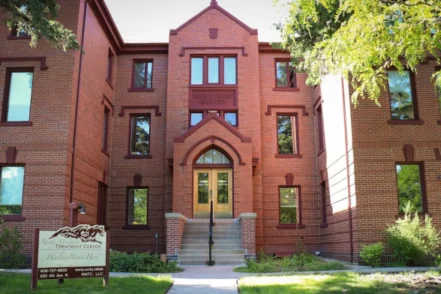 Montana
MontanaRocky Mountain Treatment
920 4Th Avenue North Great Falls, Montana 59401
-
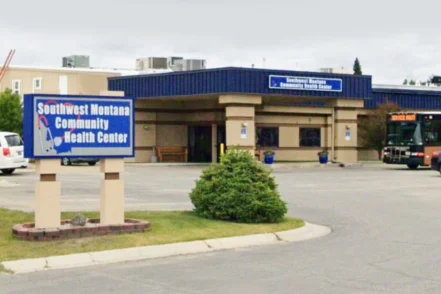 Montana
MontanaSouthwest Montana Community Health Center Butte
445 Centennial Avenue Butte, Montana 59701
-
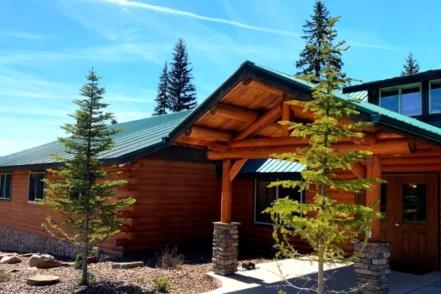 Montana
MontanaBehavioral Health Turning Winds
31733 South Fork Yaak Rd Troy, Montana 59935
-
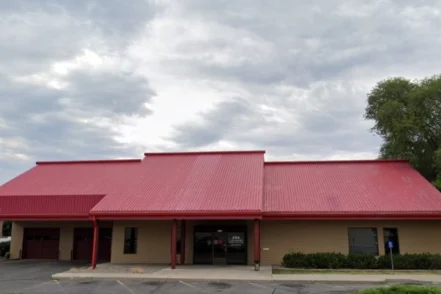 Montana
MontanaCommunity Medical Services Missoula
2415 South Catlin Street, Suite 4 Missoula, Montana 59801
-
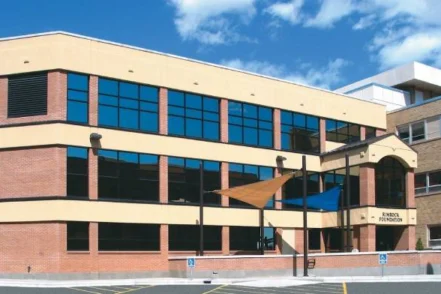 Montana
MontanaRimrock Foundation
1231 North 29Th Street Billings, Montana 59101
-
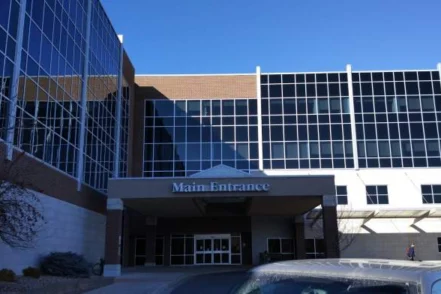 Montana
MontanaSt Peters Hospital
2475 East Broadway Street Helena, Montana 59601
-
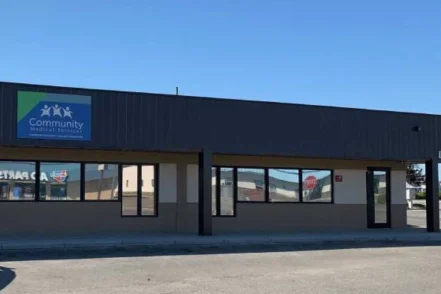 Montana
MontanaCommunity Medical Services Billings
2040 Rosebud Drive, Suite 7 Billings, Montana 59102
-
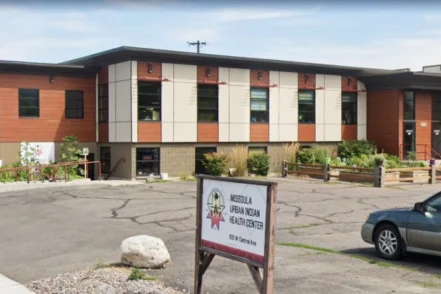 Montana
MontanaAll Nations Health Center
830 West Central Avenue Missoula, Montana 59801
-
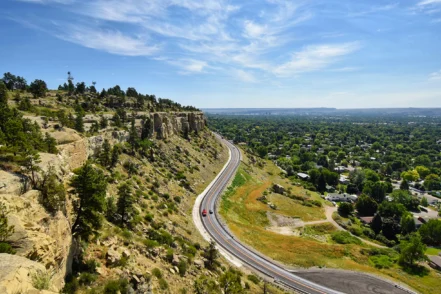 Montana
MontanaIdeal Option Billings
2525 4th Avenue North, Suite A Billings, Montana 59101
-
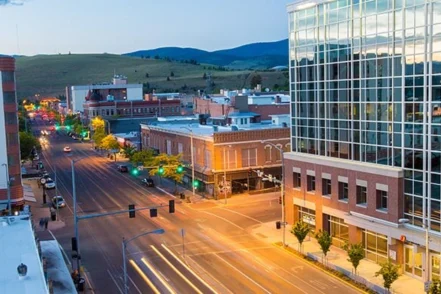 Montana
MontanaWinds of Change
1120 Cedar Street Missoula, Montana 59808

